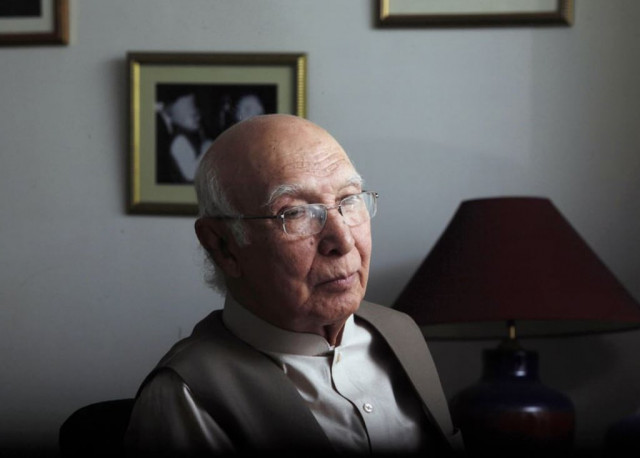NAP progress: Anti-terror operation showing ‘encouraging’ results
Sartaj Aziz admits Pakistan was facing internal security challenges

PHOTO: REUTERS
Speaking at a seminar on “accountability and good governance”, the adviser added that Pakistan had evolved a comprehensive strategy to deal with the menace of terrorism and extremism.
“Starting with the coordinated operation in Karachi in September 2013 and then Zarb-e-Azb in North Waziristan in June 2014, the government is now implementing the National Action Plan announced in December 2014. The results so far are quite encouraging,” he said.

Despite his statement many critics believe that NAP is yet to be implemented fully. According to the list of proscribed organisations recently submitted before the Supreme Court, the government has not banned any militant outfit following the new anti-terror strategy.
Sartaj admitted that Pakistan was facing internal security challenges due to extremism and terrorism.“This challenge is not new to our region which had become a melting pot of many global fault lines. These include the Russian invasion of Afghanistan in December 1979 and then the aftermath of the tragedy of 9/11. That is why we have adopted a policy of non-interference so that in future we are not dragged into other countries wars or rivalries,” he said.
He mentioned several steps including the medium term measures in the National Action Plan including Fata Reform, Madrassah reform and a programme of de-radicalisation.
“Two important pre-requisites for the success of these reforms and programmes are effective accountability and good governance,” he emphasised.
Published in The Express Tribune, June 30th, 2015.


















COMMENTS
Comments are moderated and generally will be posted if they are on-topic and not abusive.
For more information, please see our Comments FAQ